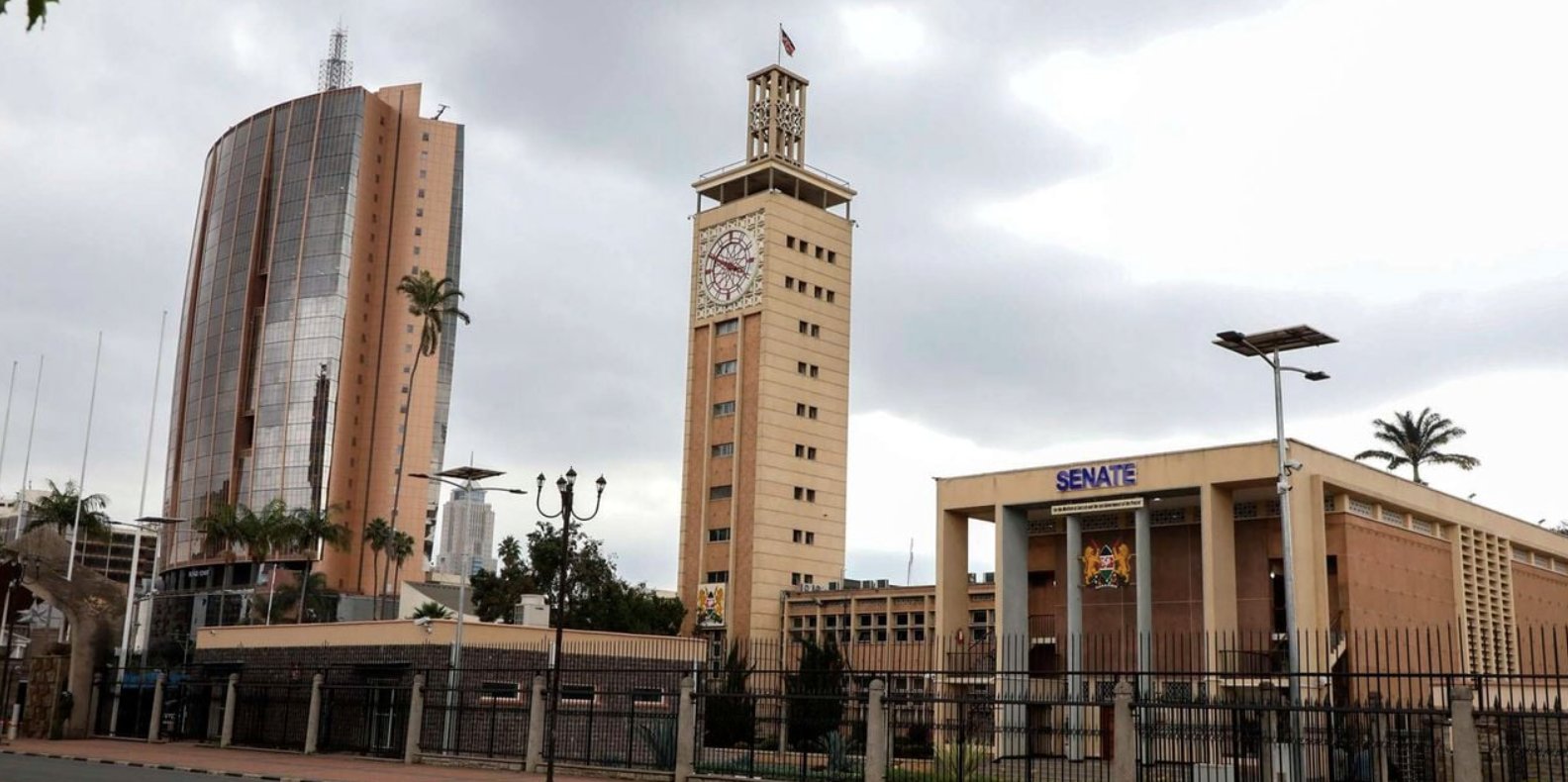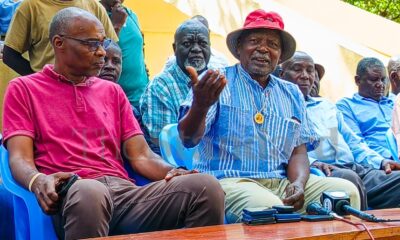Business
Red Flags Over Secret Deal With Purchase of Portland Cement Shares By Tanzanian Tycoon
Members of the parliamentary committee on trade, industry and cooperatives reckon that the firm acquiring the stake is eyeing EAPC assets, notably land that is valued in excess of Sh20 billion.

A controversial deal that could see Tanzanian billionaire Edhah Abdallah Munif acquire a controlling stake in Kenya’s East African Portland Cement Company (EAPC) has exposed serious concerns about asset stripping, market manipulation, and the erosion of Kenya’s industrial base.
Parliament has now intervened, directing EAPC to pursue a share buyback instead of allowing the deeply discounted sale to proceed, as lawmakers raise alarm over what appears to be one of the most questionable corporate transactions in recent memory.
The deal centers around Munif’s acquisition of 26.32 million EAPC shares from Swiss multinational Holcim using an investment firm known as Kalahari Cement at Sh27.30 each, valuing the deal at Sh718.7 million.
However, Portland Cement shares closed trading at Sh56 a piece yesterday, placing the market value of the firm at Sh5 billion, revealing the staggering discount being offered to the Tanzanian investor.
The mathematics are stark and troubling. At current market prices, the 29.2 percent stake being acquired would be worth Sh1.4 billion at the current share price, yet Munif is paying less than half that amount.
This represents a discount so severe that it has prompted accusations of preferential treatment and potential insider dealing.
More concerning is the true value of what Munif is acquiring. EAPC’s net asset or book value stands at Sh20.4 billion, as per the company’s latest audited financial results dated June 2024, with total assets of Sh35.19 billion against total liabilities of Sh14.79 billion.
The bulk of this wealth lies in investment properties worth Sh21.23 billion, largely freehold land comprising 4,626 acres held under long-term lease arrangements.
This land portfolio has become the elephant in the room.
Members of the parliamentary committee on trade, industry and cooperatives reckon that the firm acquiring the stake is eyeing EAPC assets, notably land that is valued in excess of Sh20 billion.
The company has already indicated plans to monetize this asset base, having won a court battle in 2023 against squatters who had occupied the land for about 10 years, with plans to sell off part of its expansive land holdings to raise Sh10 billion towards working capital.
The timing and structure of the deal raise additional red flags.
Munif’s Amsons Group completed the full acquisition of Bamburi Cement in December for Sh23.6 billion, cementing its hold on Kenya’s cement market.
With Bamburi Cement already owning 12.5 percent of EAPC, he will emerge as the single-largest shareholder of the Athi River-based company with a 41.75 percent stake if the current deal proceeds.
This consolidation is occurring as the East Africa cement market reached $2.66 billion in 2024 and is projected to climb to $2.98 billion by 2033, making control of major producers increasingly valuable.
The strategic importance of EAPC, one of Kenya’s oldest cement manufacturers that operates as far as Uganda, cannot be understated in this context.
Public interest concerns have intensified given the ownership structure of EAPC.
The State and the National Social Security Fund (NSSF) have a combined stake of 52 percent in EAPC, with pensioners, through the NSSF, owning a 27 percent stake while the government, through the Treasury, owns a 25 percent stake.
This means that millions of Kenyan workers and retirees stand to lose from any undervaluation of their pension fund investments.
Activist lawyer Okiya Omtatah has sought to block the sale, arguing that should the deal go through, there will be massive losses for Kenyan pensioners.
The concerns extend beyond immediate financial losses to questions about foreign control of strategic national assets.
Parliament’s intervention reflects growing unease about the deal’s transparency and fairness.
Members of the National Assembly Committee on Trade, Industry and Cooperatives want EAPC to buy back the shares at market value and sell for a profit later, with Kajiado South MP Samuel Parashina pointedly asking management, “Why are you waiting for the shares to be sold? Why not buy it back now?”
EAPC Managing Director Mohammed Osman has acknowledged the feasibility of this alternative, telling the parliamentary committee that the firm will pursue the share buyback option if directed by Parliament, noting “We have the capacity to buy back the shares… We have the cash flow to settle the amount because we have turned around the company”.
The dramatic recovery in EAPC’s share price supports this confidence.
In the past year, the EAPC share price has gone up by 359 percent from Sh7.2 a unit, making it one of the top performers at the bourse in the period. This performance trajectory makes the discounted sale even more questionable.
Regulatory authorities find themselves in an uncomfortable position.
CMA chief executive Wyckliffe Shamiah said the regulator was powerless in dictating the offer price, arguing it reflects an agreement between buyer and seller.
However, the Capital Markets Authority approved the controversial sale at a price it acknowledged was a steep discount, raising questions about regulatory oversight.
The broader implications extend to Kenya’s industrial sovereignty and economic security. The cement industry represents critical infrastructure for national development, and the concentration of market power in foreign hands through questionably priced transactions sets a troubling precedent.
As Parliament pushes for a share buyback solution, the EAPC case has become a test of Kenya’s ability to protect strategic national assets from predatory acquisition.
The outcome will likely influence how similar deals are structured and scrutinized in the future, making it a watershed moment for corporate governance and public interest protection in Kenya’s capital markets.
The red flags are clear and numerous: massive discounts to market value, even steeper discounts to book value, timing that benefits from market manipulation, consolidation of market power, and potential asset stripping of valuable land holdings.
Whether Parliament’s intervention can prevent what many view as a fire sale of national assets remains to be seen, but the controversy has already exposed significant weaknesses in Kenya’s framework for protecting strategic investments from questionable foreign acquisition.
Kenya Insights allows guest blogging, if you want to be published on Kenya’s most authoritative and accurate blog, have an expose, news TIPS, story angles, human interest stories, drop us an email on [email protected] or via Telegram
-

 Business2 weeks ago
Business2 weeks agobetPawa Empire Crumbles: Mr Eazi’s Betting Gambit Unravels Amid Partner’s Shadowy Deals
-

 Business1 week ago
Business1 week agoMinnesota Fraud, Rice Saga, Medical Equipment Deal: Why BBS Mall Owner Abdiweli Hassan is Becoming The Face of Controversial Somali Businessman in Nairobi
-

 News1 week ago
News1 week agoDCI Probes Meridian Equator Hospital After Botched Procedure That Killed a Lawyer
-

 Politics1 week ago
Politics1 week agoYour Excellency! How Ida’s New Job Title From Ruto’s Envoy Job Is Likely to Impact Luo Politics Post Raila
-

 Investigations2 weeks ago
Investigations2 weeks agoEXPOSED: SHA Officials Approve Higher Payments for Family, Friends as Poor Patients Pay Out of Pocket
-

 News1 week ago
News1 week agoKenya Stares At Health Catastrophe As US Abandons WHO, Threatens Billions In Disease Fighting Programmes
-

 Business1 day ago
Business1 day agoCooking Fuel Firm Koko Collapses After Govt Blocks Sh23bn Carbon Deal
-

 Politics2 weeks ago
Politics2 weeks agoJaramogi Clan Tells Raila Jr, Winnie Against Disrespecting Their Uncle Oburu, Warns of Curses
























